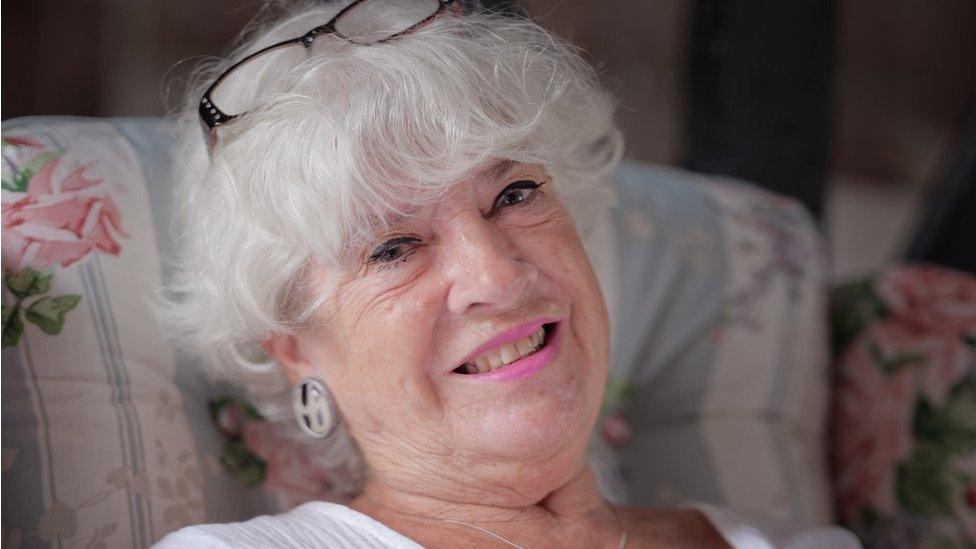Hospital trains junior doctors in robotic surgery
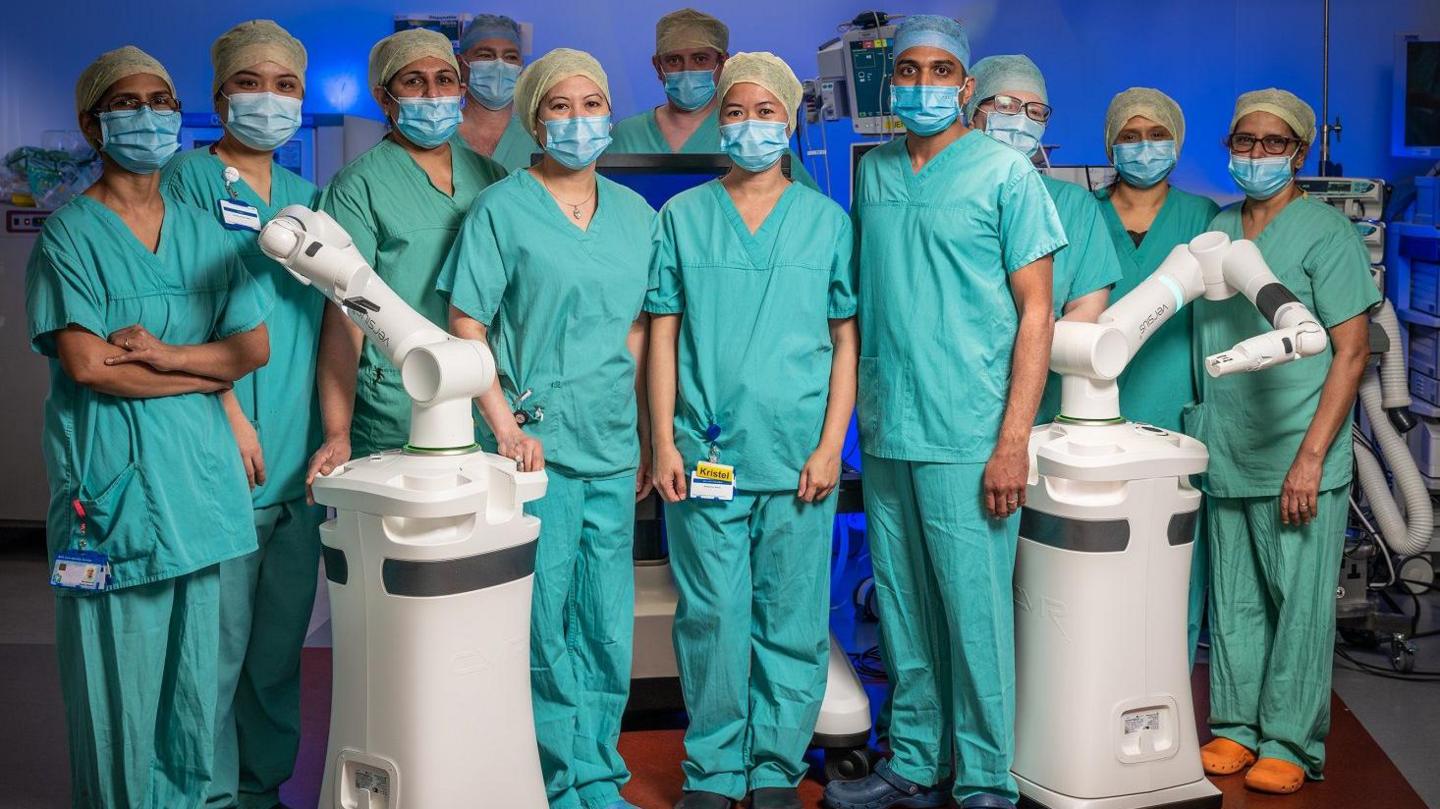
Watford General said it was the UK's first hospital to widely train junior doctors in robotic surgery
- Published
A surgeon said he was "really proud" his hospital trust had invested heavily in robotic surgery.
West Hertfordshire Teaching Hospital NHS Trust, external said it was running one of the UK’s first robotics training programme for junior doctors at Watford General Hospital.
It has also invested in four robots to carry out certain planned operations, guided by surgeons.
Consultant Vanash Patel said: "We are trying to make a statement that robots are not luxury items."
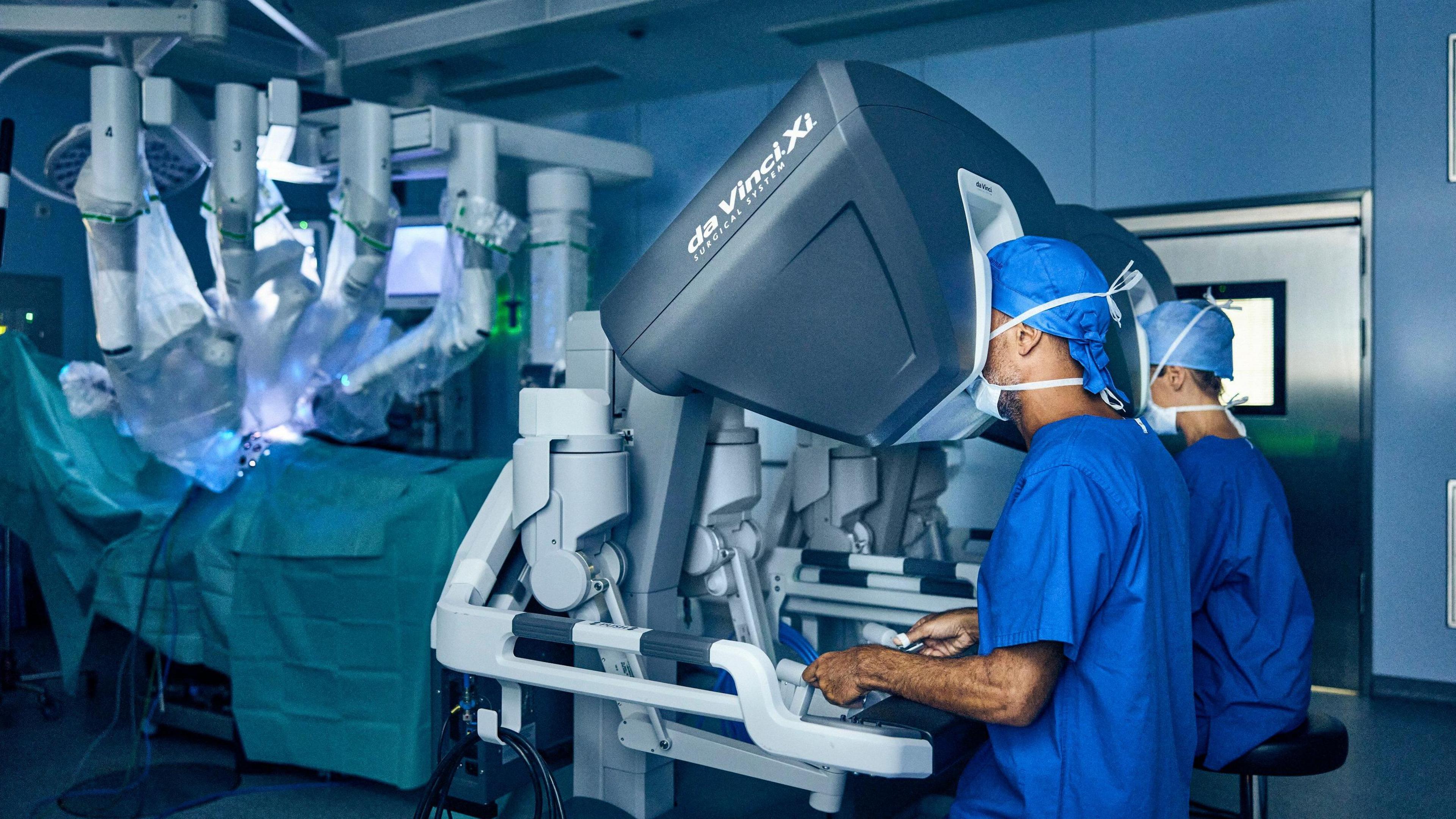
Surgeons are able to control the robotic arms away from the patient's bedside
The hospital bought two robots in 2022 and acquired two more this year, primarily to carry out operations on the bowel, gallbladder, and womb.
It has treated about 360 patients so far and hopes to increase that to 750 per year.
‘Like PlayStation controllers’
The colorectal specialist explained that robotic surgery does not mean a humanoid robot carrying out an operation independently, but instead a robotic arm moves "according to your own arm and hand movements".
"It is a master-slave system where I have hand controls, almost like PlayStation controllers with foot pedals and buttons," he said.
"I'm not in any operating gear and can do the operation away from the patient’s bedside."
Mr Patel added that, as well as benefits to the patient, such as less blood loss, smaller incisions and less pain, the system makes life a lot easier for surgeons.
"Now, sitting down to do a keyhole robotic operation away from the patient, I don't feel as fatigued. I’m fresh and ready for the next session."
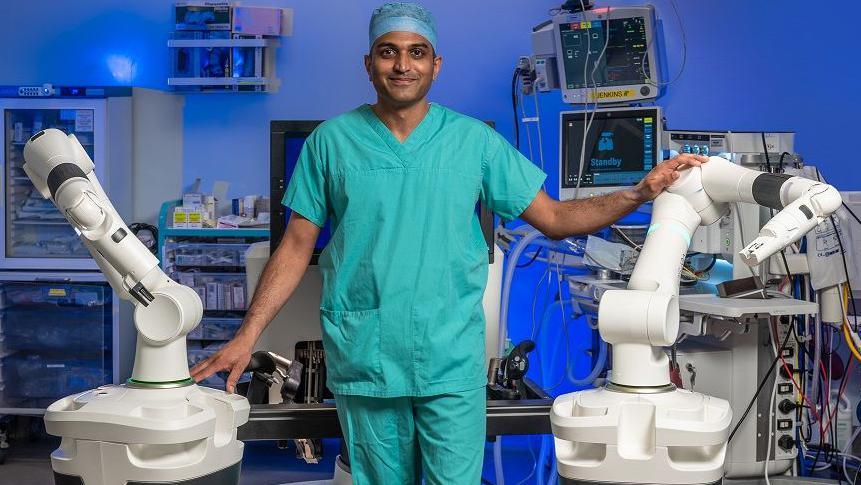
Vanash says robotic surgery is less invasive for patients and also less tiring for surgeons
Patient Ginny St John Glew, 75, said she was "rather excited" to discover her operation would involve robotic keyhole surgery.
But because she was anaesthetised, she did not see the robot arm in action removing a very small cancer in her colon.
She said: "The next thing I knew was afterwards, when the surgeon said he’d phoned my daughter and all was fine.
"I felt very lucky that it was much less invasive and I could go home after two days."
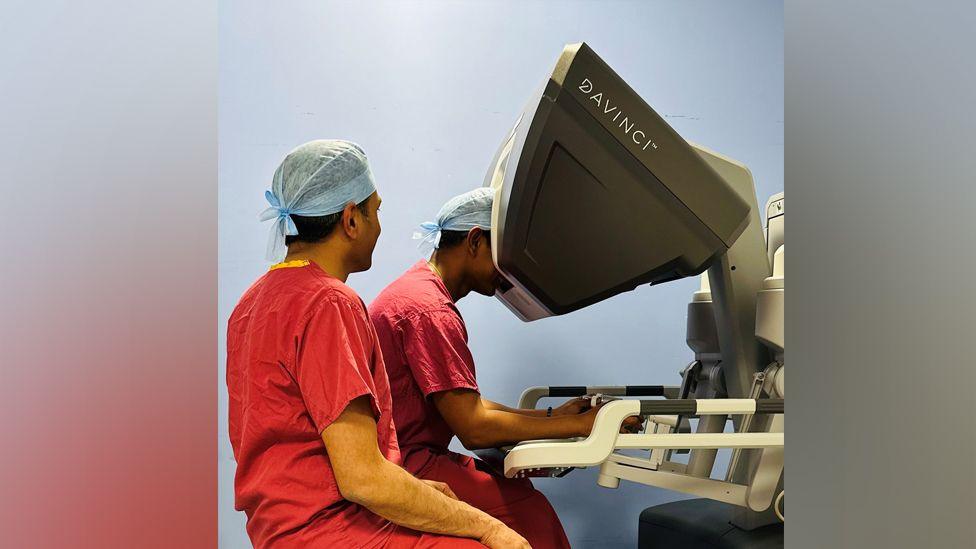
Vanash Patel training a junior doctor in using one of the hospital's robotic systems
Mr Patel said investing in the robotic systems had helped to attract more high-calibre doctors to the hospital and was "boosting morale" among staff.
"When you look around the country and speak to other surgeons, they struggle to get robots into their units," he said.
"It's a bugbear of the junior doctors who are normally not able to do the robotic operations."
He believed the cost of the robots - some of which are priced at £1.4m - was outweighed by shorter hospital stays and improved recovery and recruitment.
"We don’t want to only offer half our patients robotic surgery. If it’s better, we want everyone to benefit."
Follow Beds, Herts and Bucks news on Facebook, external, Instagram, external and X, external. Got a story? Email eastofenglandnews@bbc.co.uk, external or WhatsApp us on 0800 169 1830
Related topics
Similar stories
- Published14 December 2023
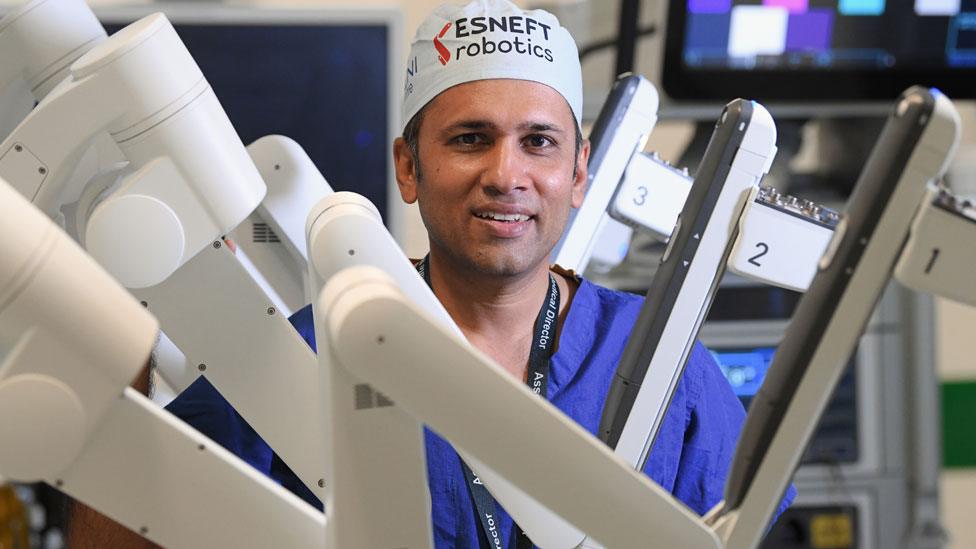
- Published12 December 2019
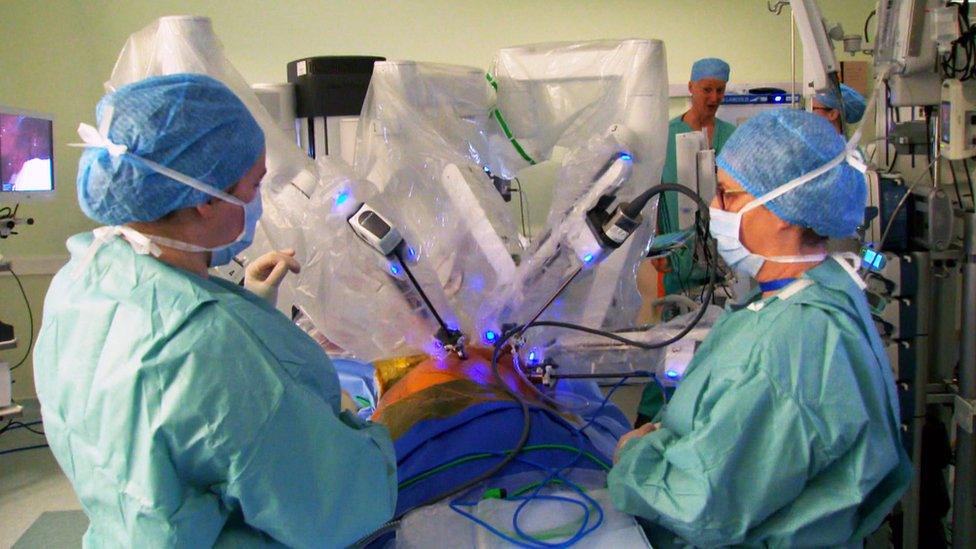
- Published18 May 2023
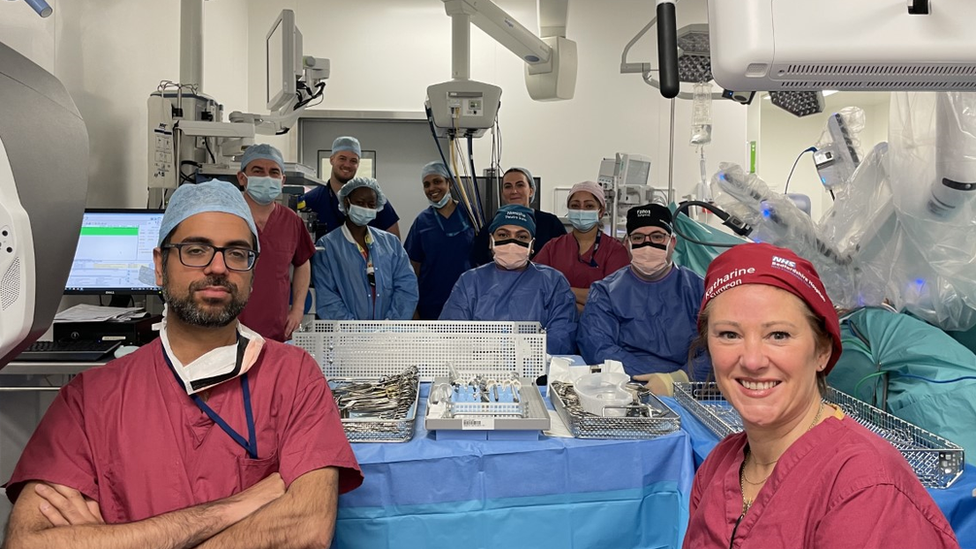
- Published6 July 2023
